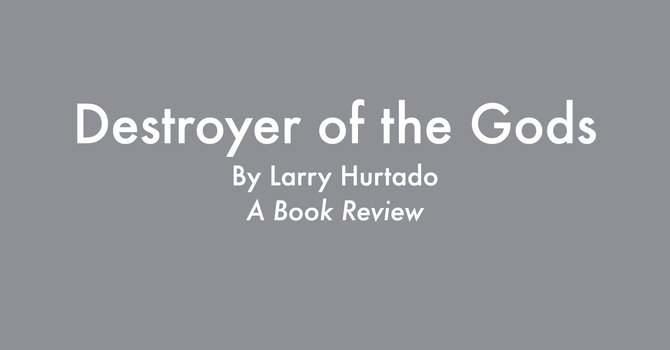
We don't look forward to it, but we know it's coming.
It's the day you discover your first gray hair. For most, this day comes in their mid-thirties to early forties.
I experienced it when I was 21 years old.
I still remember the unusual sheen in the bathroom mirror that caught my attention. In and amidst my curly brown hair was an unwelcome intruder. I was horrified to see my first gray hair.
I prefer the term "arctic blond" used by my former barber.
It may soften the blow to not call it what it is, but the visual reminder still carries the startling reminder that I am slowly dying and the wave of "artic blonde" is performing an ever so slow hostile take over.
A person's hair changes from amber, dark, red, brown, or blond to gray due to genetics or other physiological factors. However, some research indicates that the way people carry stress may also contribute to the unfortunate change.
Now fast-forward through 15 years of vocational ministry, 12 years of marriage, 8 years of parenting, 3 kids, 2 moves and 1 pandemic, I have 1000's of gray hair.
Getting Real about Getting Gray
There is a stigma against gray hair: it is a sign that you are old.
Against the backdrop of the desire for endless youth, gray hair is a sign that those days are numbered and that death is slowly stalking.
People who have known me for a long time don't hesitate to tell me how gray I am becoming. Recently, my Dad commented on my hair's salt and pepper look.
In my most insecure moments, my gray hair is a source of shame.
Looking back on pictures from just a few years ago (pre-pandemic - I think there is a correlation there!) I long for the days of a full head of dark hair.
How do I deal with this? Should I embrace it or be embarrassed by it?
Now, towards a theology of gray hair we go:
A Theology of Gray Hair
The Bible, in contrast to our culture of aesthetic beauty and youthful egotism, has a different perspective on gray hair. Instead of being a sign of shame and aging, it serves as a symbol of wisdom and respect.
How can we (I) think differently about the gray takeover?
1. We are all made in the image of God
In the Bible, the imago dei is the idea that every human is endowed with a touch of the divine. It's not that every human is divine, but humans are different from other created things. As much as we love our dogs, there is a different capacity and reality that is bestowed on humans.
In other words, no matter what your socio-economic status, ethnicity, ability, sexuality, or age is, you are worthy of dignity and respect.
The imago dei is the foundational principle behind the modern idea of human rights (perhaps a future post tackling this!).
You are loved and worthy of respect regardless of whether you have gray, red, brown, or no hair at all.
2. You have been knit together just as you should be
It is because we are made in the image of God, that we are made with beauty and intentionality.
Many people, including myself, struggle with body image.
David reminds us in Psalm 139: "I praise you because I am fearfully and wonderfully made; your works are wonderful."
Even though we have felt thousands of times that we will never measure up to the counterfeit picture of ageless perfection, God never thought that of you or me. Your physical body has an innate beauty. Your body matters and is not a mistake.
Whether you play on team bald, team gray, team short and stocky, or team tall and lanky, you are fearfully and wonderfully made.
My graying offers me the opportunity to understand this "full well."
3. You are going to get old and die
James 4 asks: "What is your life? You are a mist that appears for a little while and then vanishes." The modern project of humanism and secularism promises that if you do the right things at the right time, you can elongate your life.
While eating well and exercising are vital to a flourishing and long life, the truth is that one day we will age and eventually die. Instead of being a frightful reality, perhaps it is meant to teach us.
As the Psalmist wisely said, "Teach us to number our days, that we may gain a heart of wisdom."
Looking into the mirror and noticing my gray hair, I realize it is meant for me to live wisely.
4. God is faithful from birth until old age
Isaiah 46:4: "Even to your old age I am he, and to your gray hairs I will carry you. I have made, and I will bear; I will carry and will save."
Isaiah is contrasting false gods and their inability to help and his faithfulness. Instead of disappointment and futility, God's promised that He will never fail. That God can be trusted from womb to tomb; from the beginning to the end.
So whenever I see my gray hair, even if it is there too early, it is a reminder of God's faithfulness to me.
5. Gray hair is a reminder of the worthiness of a righteous life
Proverbs chapter 16 says, "Gray hair is a crown of glory; it is gained in a righteous life."
Bruce Waltlke, in his commentary on Proverbs, notes that there are 22 times in the Old Testament where "gray hair" is mentioned. Almost all of them talk about it being a blessing and worthy of respect.
As a book written to young Jewish students, this section of Proverbs seeks to reframe time and age. Instead of being a sign of weakness, it is rather a "crown" which symbolizes authority, status, and dignity.
Here is the catch: simply having gray hair doesn't make you righteous. Gray hair is simply a symbol associated with virtue.
So the invitation, when you start to see the salt and pepper come, is to pursue the good and beautiful life, of faith, hope, and love.
6. Gray hair is a reminder of the splendor of a wise life
Proverbs 20:29 says, "The glory of young men is their strength, but the splendor of old men is their gray hair."
Youth and the elderly are juxtaposed in this verse. Generally speaking, the youth find their power in their strength, but the same power is found in the gray hair of the older generations.
This is speaking of a symbiotic relationship between the youth and the aged. Without wisdom, the strength of youth will never be wisely expressed.
What's the takeaway? Gray hair is not a sign of being wizened, it's a sign of wisdom.
7. Gray hair is a reminder of proclamation
Psalm 71:18 notes: “So even to old age and gray hairs, O God, do not forsake me, until I proclaim your might to another generation, your power to all those to come.”
This is a Psalm of lament. Lament simply means when one expresses grief or sorrow. After running from enemies, the psalmist petitions God to not forsake him, from child birth to old age, asking that God will be close to him.
Why? So the writer can proclaim the goodness and faithfulness of God to the next generation.
As I look back on my life, the one anthem throughout has been just this: the faithful love of a God who has never given up on me.
May my kids see this in my life as I proclaim it to "the next generation."
So what now?
It's clear that the Bible speaks differently about gray hair than the script of our culture: "Stay young and beautiful."
Gray nudges us to remember that we are made with intention and though we age, grow weaker, and eventually die, God is kind, faithful and trustworthy throughout.
As I absorb the truth of the Biblical perspective, I feel buoyed. Instead of looking back with longing at how I once looked, I find myself more content in what my gray hair represents: a slow but every so steady growth in the realities of life, fatherhood, leadership, and service to others.
The invitation for you and I is to remind ourselves of the truth and intention of our physical bodies. We have the opportunity to pass wisdom on to others, and to embrace each day as a gift as we simply don't know the future.
So as you look into the mirror and see the hostile takeover of the "arctic blonde" I hope you can tell yourself the true Biblical story of what they represent, instead of being defeated by the secular script.





